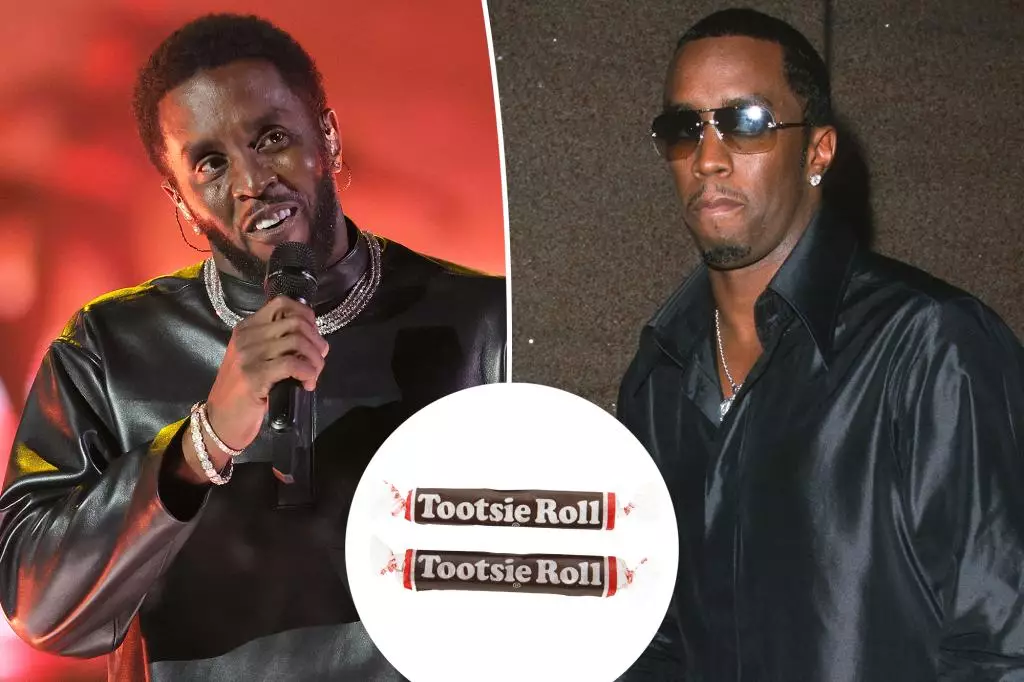In a shocking revelation that has sent ripples through the music industry, Sean “Diddy” Combs finds himself entangled in a web of grave accusations stemming from a lawsuit filed by a woman identified as Jane Doe. This case, which echoes a narrative of power dynamics, sexual violence, and trauma, sheds light on the darker side of fame and fortune. Doe alleges that her encounters with the music mogul began innocently enough—with meetings at clubs and restaurants, but it was in July 2001 that their relationship took a dire turn, culminating in a nightmare scenario that she claims involved rape.
The timing and nature of the allegations raise numerous questions. Why, after all these years, is this coming to light now? The lawsuit’s specifics detail an encounter that took place in a private setting, highlighting the dilemma faced by many survivors of sexual assault when considering whether to come forward. For Doe, this legal action seems to be a form of reclaiming agency through the recognition of her trauma, though the path to justice is fraught with challenges.
The Graphic Nature of Allegations
What sets this case apart is the graphic detail provided in the court documents regarding Combs’ physical attributes, a pointed description that seems almost intended to sensationalize the narrative rather than focus solely on the gravitas of the alleged actions. It’s as if the lawsuit has commodified the assault as much as it conveys the horror involved. Doe describes Combs’ anatomy with an unsettling specificity, perhaps as an attempt to establish a visceral image tied to her experience.
However, in doing so, it shifts focus momentarily from the core issues of consent and power dynamics to something more salacious. This raises critical discussions around how narratives of sexual violence are constructed—often through sensationalist lenses that can detract from serious issues like consent, fear, and trauma. Though it is essential that such details are addressed when making a legal case, the impact of framing such narratives is deeply multifaceted and problematic.
Reflection on Power Dynamics
The broader implications of this lawsuit go beyond the individual case—it speaks to systemic issues surrounding gender dynamics and the normalization of abuse in high-profile environments where power and fame intersect. Diddy, like many in the realm of celebrity, wields significant influence, and it is crucial to question how this power can create an environment conducive to exploitation.
Additionally, the response from Combs’ camp invokes a familiar defense often witnessed in celebrity circles—a denial of all wrongdoing while emphasizing the frivolous nature of lawsuits levied against high-profile individuals. This rhetoric, unfortunately, reflects an ongoing societal challenge: the tendency to discredit claims made by survivors, especially when those claims arise years after the alleged incident. The claim that anyone can file a lawsuit for any reason runs the risk of undermining genuine allegations that deserve a fair judicial review.
The Impact of Public Perception
The media’s role in shaping public perception around such allegations cannot be overlooked. As we observe the unfolding of this case, there is a pressing need to critically evaluate how media coverage influences societal attitudes toward survivors and perpetrators alike. The urgency of the “Me Too” movement has illuminated the complexities surrounding sexual violence, urging a collective reckoning with how survivors are treated and how accusations are perceived.
While Combs’ legal team maintains that he has never committed sexual assault, the ramifications of his ongoing sex-trafficking trial serve as a reminder that public figures often live under scrutiny that can complicate the perceptions of justice. The balance between reputational risk and the truth is a delicate one, complicating the ability of survivors to find what they seek: closure, acknowledgment, and justice.
Moving Forward: Cultural Conversations
As we witness more allegations surface in a culture that is increasingly willing to confront uncomfortable truths, it becomes vital to nurture a discourse around consent, trauma, and healing. Jane Doe’s allegations, regardless of their outcome, cast a critical spotlight on behaviors that are often minimized or overlooked within the entertainment industry. The hope is that these discussions can pave the way for a more compassionate understanding of survivors’ realities, fostering an environment where voices are not only heard but validated, and where the cycle of silence is finally broken.

